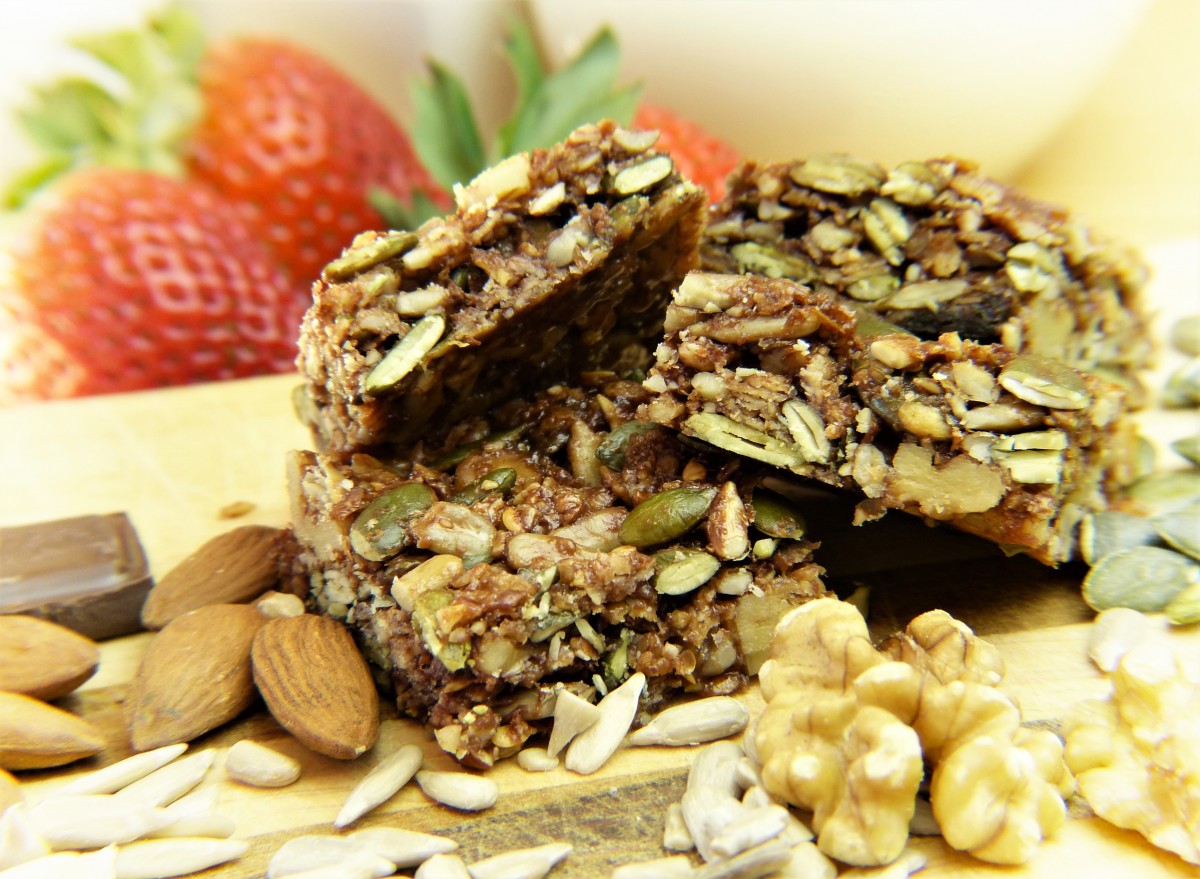I consult with a lot of athletes, and a question I often get asked is “Which energy bar is best for me?” They usually have a few common requirements for their energy bars: a reasonably priced, healthy option, with local or online availability.
Individual’s needs may vary. Below are a few common criteria, which can be applied to choosing an energy bar.
Which Energy Bars are Best?
- Homemade energy bars. When you make your own energy bars, you know exactly what is in the bar, including how it is made and where ingredients are sourced. Which you may not necessarily obtain from a pre-packaged store-bought bar. This option may be difficult to squeeze into a busy schedule, but may be worth it for the health benefits and mindful connection to food.
- Limit natural and added sugars. Aim for less than 10 grams of sugar per bar serving. Even during strenuous workouts, ingesting too much sugar will spike blood sugar levels, and may quickly lead to energy crashes. This is a surefire way to limit performance gains.
- Include healthy natural fats. Nuts, seeds, olive oil and coconut oil provide powerful anti-inflammatory compounds, which help reduce recovery time.
- Limit inflammatory oils. Industrial oils, such as canola, safflower and cottonseed, contain high levels of Omega 6 fatty acids. This can promote inflammation in the body, increasing recovery time.
Keep in mind energy bars do not just have to be for active athletes, they can provide sustainable fuel for everyone.
No time for making bars at home? Combine nuts, seeds, olives and/or dried fruit in a container and take with you on your next adventure!
Originally posted 2018-06-28 11:17:04.







